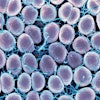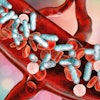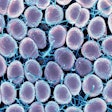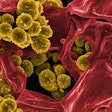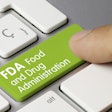Dear LabPulse Member,
Sometimes I feel like I am on a rollercoaster ride with the novel coronavirus here from my vantage point in San Francisco. Stores and restaurants start to open and then abruptly close with the stops and starts of state reopening plans. Tests seem to be available, then not so much.
As of July 15, the World Health Organization reported more than 13.1 million cases of COVID-19 and 574,00 deaths. Of those totals, 3.3 million and 135,000, respectively, were reported in the U.S.
Residents of long-term care facilities are particularly vulnerable during the pandemic. A recent study conducted at 11 long-term care facilities in Maryland tested all residents and found a large percentage of those who tested positive -- 53% -- had no symptoms. Researchers said that the results underscore the importance of universal testing in these settings.
Associations representing long-term care providers recently sent a letter to the National Governors Association saying that "urgent attention" was needed to prevent COVID-19 outbreaks and pleading for help with COVID-19 testing and lab processing. A survey of nursing homes and assisted living communities found that lab test reporting was taking too long. This week, the U.S. Department of Health and Human Services announced it would be distributing 2,000 rapid antigen point-of-care tests for the novel coronavirus to long-term care facilities, with a focus on hotspot geographical areas.
Demand for testing is translating into sales for test manufacturers as shown by second-quarter earnings reports from companies such as Becton Dickinson, Quest Diagnostics, and PerkinElmer. The global market for molecular diagnostics is set to grow by $5 billion this year to a total of $13 billion, thanks in part to the volume of sales for COVID-19 molecular tests, according to a report from market research firm Kalorama Information, a sister company of LabPulse.com.
For labs, rising demand has been a challenge in light of the shortage of testing supplies and a decline in overall testing volume. On the bright side, the pandemic has greatly raised the profile of lab professionals -- explainers of the different types of tests and sampling methods are now common fare on the mainstream media menu.
The image of the profession may get another boost from a new study about workforce data that was sponsored by the College of American Pathologists. According to the analysis, there were some 21,292 pathologists actively practicing as of June 2019, which is much higher than the 12,839 figure cited in a previous study that attracted a lot of attention, but which appears to have been based on flawed methodology. Getting an accurate count of pathologists is important for attracting residents into the field, leaders of the specialty say.
